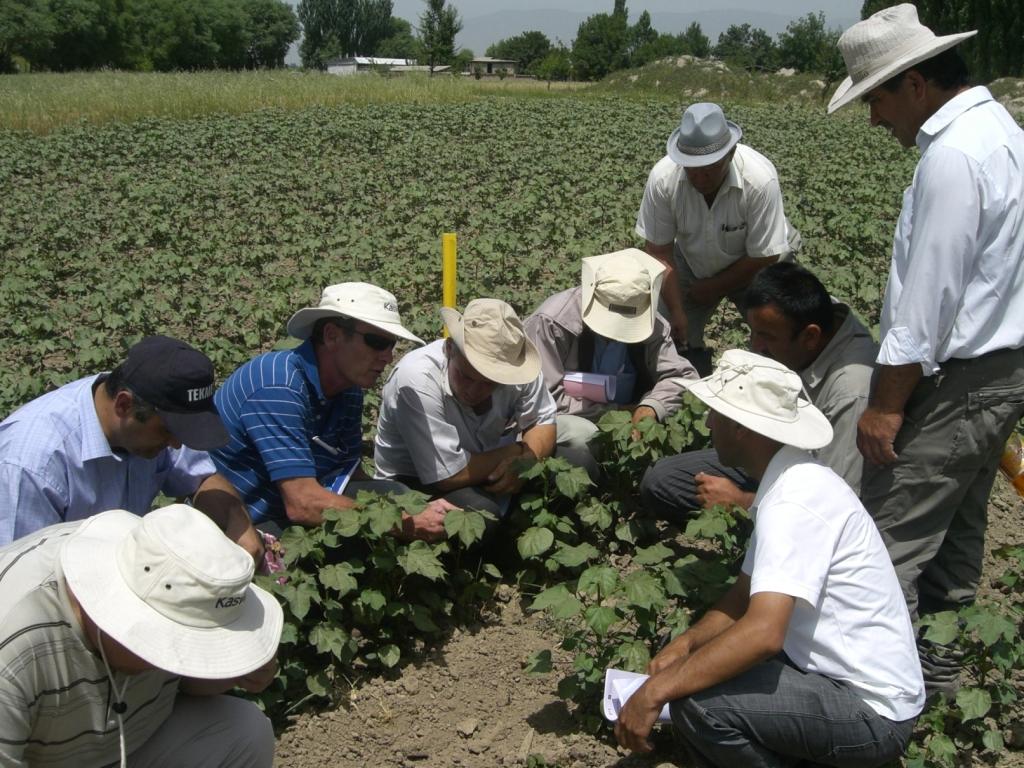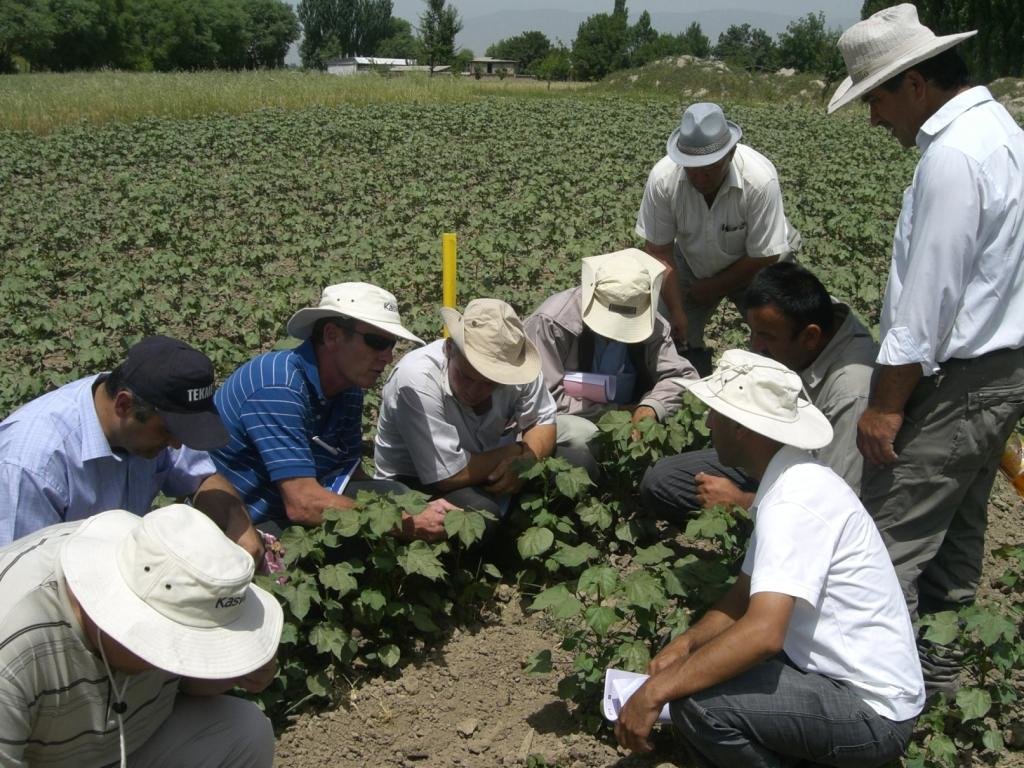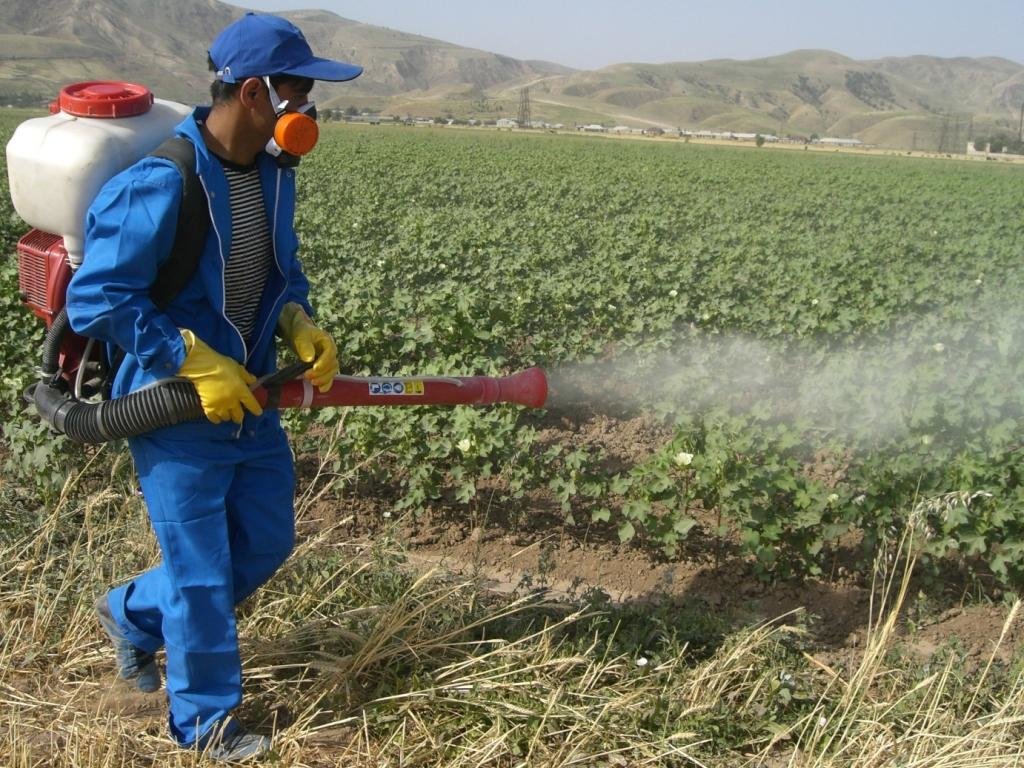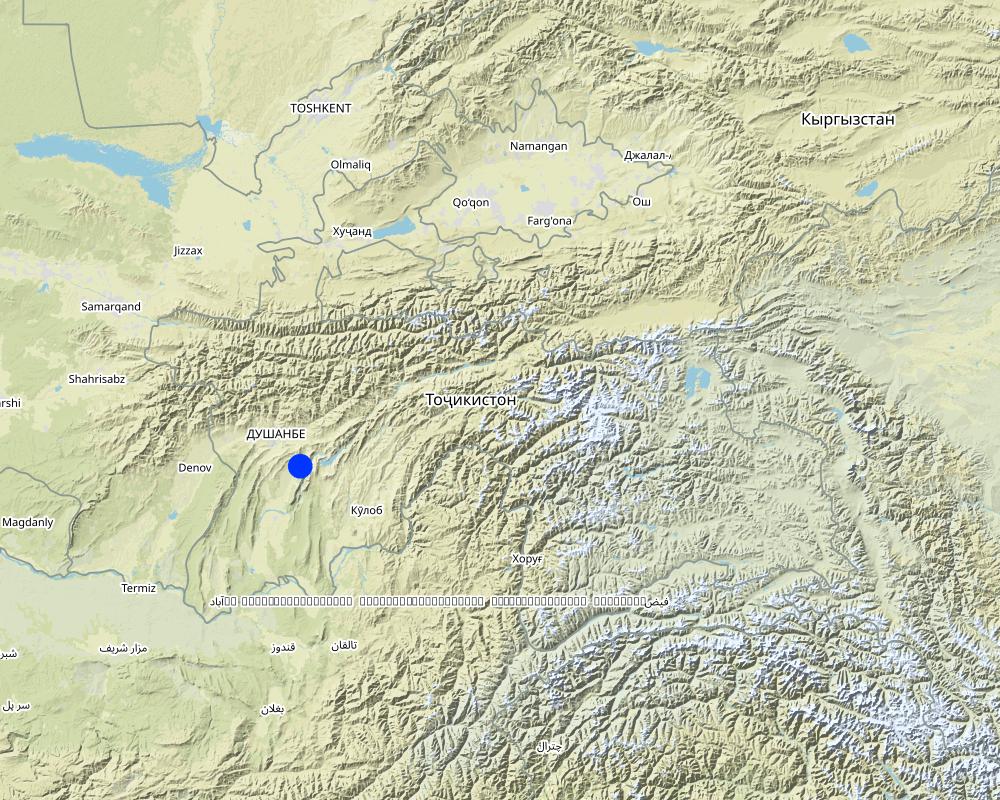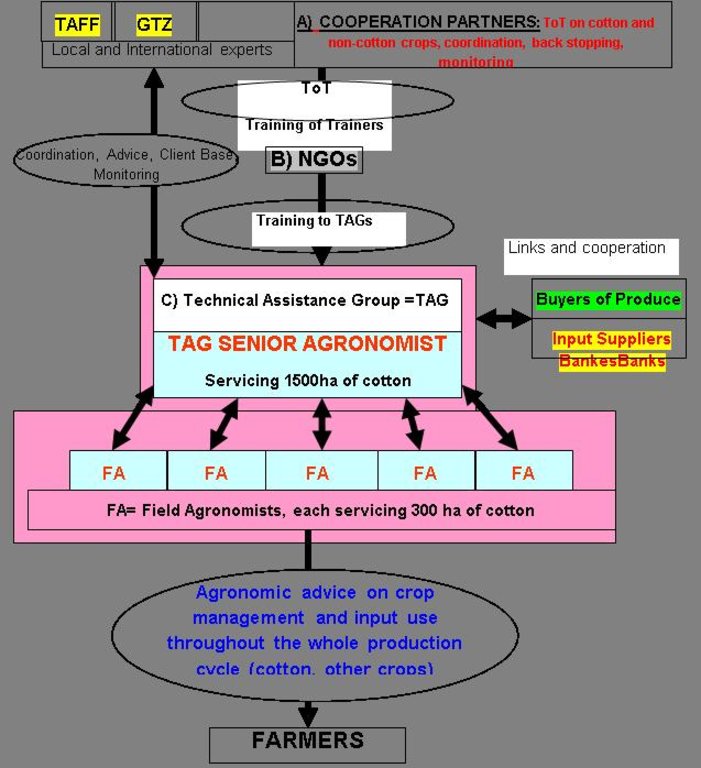Technical Assistance Groups (TAG) [Tajiquistão]
- Criação:
- Atualização:
- Compilador/a: Philippe Zahner
- Editor: –
- Revisores: David Streiff, Alexandra Gavilano, Joana Eichenberger
approaches_2448 - Tajiquistão
Veja as seções
Expandir tudo Recolher tudo1. Informação geral
1.2 Detalhes do contato das pessoas capacitadas e instituições envolvidas na avaliação e documentação da abordagem
Especialista em GST:
Weissen Hugo
hugoweissen@kaswag.com.au
Áustria
Especialista em GST:
Kaelin Laurie
lauriekaelin@kaswag.com.au
Áustria
Nome do projeto que facilitou a documentação/avaliação da Abordagem (se relevante)
Pilot Program for Climate Resilience, Tajikistan (WB / PPCR)Nome da(s) instituição(ões) que facilitou(ram) a documentação/avaliação da Abordagem (se relevante)
Deutsche Gesellschaft für Internationale Zusammenarbeit (GIZ) GmbH (GIZ) - Alemanha1.3 Condições em relação ao uso da informação documentada através de WOCAT
Quando os dados foram compilados (no campo)?
20/05/2011
O/a compilador/a e a(s) pessoa(s) capacitada(s) aceitam as condições relativas ao uso de dados documentados através da WOCAT:
Sim
2. Descrição da abordagem de GST
2.1 Descrição curta da abordagem
Technical advisory groups working on a 'fee for service' basis provide an effective service to farmers to achieve measurable yield increases, based on regular crop monitoring, crop management advice and effective use of inputs (fertilisers, water, pesticides, etc.)
2.2 Descrição detalhada da abordagem
Descrição detalhada da abordagem:
Aims / objectives: The TAG concept is designed to achieve the following key objectives: (1) Provide an effective agronomic advisory service to farmers to achieve measurable yield increases, based on regular crop monitoring, crop management advice and effective use of inputs (fertilisers, water, pesticides, etc.), (2) Support the development of agricultural input supply and distribution, and (3) Operate as independent entities on a competitive 'fee for service' basis (fee per ha), working towards achieving self sustainability.
Methods: TAGs are the central component of the framework and follow a very simple operational structure, basically consisting of a “Senior Agronomist” (SA), a “Organisation Manager” (OM) and a defined number of “Field Agronomists” (FA). The SA will register an advisory business as well as the OM and FA. The cooperation will be regulated by cooperation contracts. The SA will engage directly into service contracts with farmer clients to whom they will provide crop management recommendations throughout the entire production cycles. TAGs will be based in defined geographic areas, operating with local staff (SA, OM, FA) and build up a customer base large enough for financial self sustainability.
Stages of implementation: (1) TAGs are registered as enterprises, (2) TAGs develop business plans, (3) TAGs develop work plans and field records, (4) each TAG signs contract with cooperation partners (TAFF and GIZ-PSD project), (5) TAGs get first payment from cooperation partners (555 USD per TAG), (6) TAGs sign consulting contracts for 500 ha, farmers pledge to pay for advisory service 24 TJS/ha in the whole season, (7) quality control of advisory contracts concluded: visit of contracted farms to ensure the farmers understand the TAG-system, (8) TAGs do market analysis for the regional availability of suppliers for pesticides, fertiliser etc., mechanisation contractors, banks, buyers, (9) second payment from cooperation partners, 5 TJS per ha up to 500 ha contracted area per TAG, (10) third payment from cooperation partners, same conditions as previous point, (11) fourth payment from cooperation partners, 12 TJS per ha contracted area (only if field advisors are contracted and have received first salary, first field records are made and filed to the TAG documentation), (12) first payment from clients/farmers, 12 TJS per ha contracted area, (13) second payment from clients/farmers, 12 TJS per ha contracted area, (14) fifth payment from cooperation partners, 5 TJS per ha contracted area (only if contracts are fully pay through clients, TAG must handover documentation of their work).
Role of stakeholders: Cooperation partners provide expertise and training, support to the organisational and sustainable development of TAGs and financial support. NGOs (Agricultural Extension Service Providers) will be invited to enter into contract agreements for the provision of training to TAGs. TAGs consist of a “Senior Agronomist” (SA), a “Organisation Manager” (OM) and a defined number of “Field Agronomists” (FA).
2.3 Fotos da abordagem
2.5 País/região/locais onde a abordagem foi aplicada
País:
Tajiquistão
Região/Estado/Província:
Khatlon, Soghd, RSS
Especificação adicional de localização:
Yovon, Hissor, Vakhsh, Djomi, Konibodom, Zafar, Kuljob, Vose
Map
×2.6 Datas de início e término da abordagem
Indique o ano de início:
2011
2.7 Tipo de abordagem
- Baseado em projeto/programa
2.8 Principais metas/objetivos da abordagem
The Approach focused mainly on other activities than SLM (productivity increase)
The main objectives of the approach were to: (1) Provide an effective agronomic advisory service to farmers to achieve measurable yield increases, based on regular crop monitoring, crop management advice and effective use of inputs (fertilisers, water, pesticides, etc). (2) Support the development of agricultural input supply and distribution. (3) Operate as independent entities on a competitive 'fee for service' basis (fee per ha), working from the start towards achieving self sustainability.
The SLM Approach addressed the following problems: low agricultural production, lack of technical knowledge
2.9 Condição que propiciam ou inibem a implementação de tecnologia/tecnologias aplicada(s) segundo a abordagem
Quadro institucional
- Inibitivo
weak capacity of governmental agricultural extension services
Treatment through the SLM Approach: establishment of independent agricultural extension services
Conhecimento sobre GST, acesso a suporte técnico
- Inibitivo
little or no access of farmers to effective agronomic technical assistance services
Treatment through the SLM Approach: establishment of technical advisory groups TAGs
3. Participação e papel das partes interessadas envolvidas
3.1 Partes interessadas envolvidas na abordagem e seus papéis
- Usuários de terra/comunidades locais
Entered contracts with TAGs to employ their advisory services
- Especialistas em GST/ consultor agrícola
All senior agronomists are male. They were selected on the basis of their perceived experience and agronomy knowledge. Field agronomists were selected by their respective SA. Some of the field agronomists are female.
Received training provided by the cooperation partners (training of trainers)
- Organização não governamental
AIN, ATAC and SAS Consulting (and other agricultural extension NGOs)
- Organização internacional
GIZ-PSD project, TAFF Tajik Agricultural Finance Framework (EBRD)
3.2 Envolvimento do usuários de terra/comunidades locais nas diferentes fases da abordagem
| Envolvimento do usuários de terra/comunidades locais | Especifique quem estava envolvido e descreva as atividades | |
|---|---|---|
| Iniciação/motivação | Nenhum | |
| Planejamento | Nenhum | |
| Implementação | Passivo | the land users pay the TAGs for their services with a service fee |
| Monitoramento/avaliação | Nenhum | |
| Research | Nenhum |
3.3 Fluxograma (se disponível)
3.4 Decisão sobre a seleção de tecnologia/tecnologias de GST
Especifique quem decidiu sobre a seleção de tecnologia/tecnologias a serem implementadas:
- Somente especialistas em GST
Explique:
agricultural extension service to provide assistance to land users
Decisions on the method of implementing the SLM Technology were made by by SLM specialists alone (top-down)
4. Suporte técnico, reforço das capacidades e gestão do conhecimento
4.1 Reforço das capacidades/ formação
Foi oferecida formação aos usuários da terra/outras partes interessadas?
Sim
Especifique quem foi capacitado:
- Equipe de campo/consultores
Tipo de formação:
- technical advisory service
Assuntos abordados:
Innovative approaches to crop management, effective use of agricultural inputs (fertilizers, pesticides, water, etc), basics of advisory work, cotton growing, modern ways of plant protection, cooperation with other service providers, improving the performance of the TAG team, and improving the TAG business were key focus points.
4.2 Serviço de consultoria
Os usuários de terra têm acesso a um serviço de consultoria?
Sim
Especifique se foi oferecido serviço de consultoria:
- Em centros permanentes
Descreva/comentários:
Technical Assisstance Groups (TAGs); Key elements: TAGs provide know-how on modern crop production and crop management techniques to individual farmer clients., TAGs establish links with input providers and buyers of produce, TAGs are financially self-sustainable through the service fee they collect from farmer clients
Advisory service is quite adequate to ensure the continuation of land conservation activities; The value of crop rotation to conservation and improvement of soil health is clear to the TAG. Problems associated with erosion and fertiliser leaching are being discussed in field training sessions.
4.3 Fortalecimento da instituição (desenvolvimento organizacional)
As instituições foram fortalecidas ou estabelecidas através da abordagem?
- Sim, significativamente
Especifique a que nível (níveis) as instituições foram fortalecidas ou estabelecidas:
- Local
Especifique o tipo de apoio:
- Financeiro
- Reforço das capacidades/ formação
Dê mais detalhes:
The TAGs were registered as formal entities. They were supported by the coordination partners financially and through training sessions.
4.4 Monitoramento e avaliação
Monitoramento e avaliação são partes da abordagem?
Sim
Comentários:
economic / production aspects were regular monitored by project staff, land users through measurements; indicators: Measurement of yields by TAG and farmers, accumulation of data over time
area treated aspects were regular monitored by project staff, land users through observations; indicators: Approx. 17,000 ha being covered by TAG
area treated aspects were regular monitored by project staff, land users through measurements; indicators: Nearly 900 Dehkan Farms serviced
no. of land users involved aspects were regular monitored by project staff through observations; indicators: Communication between TAG, land users, input suppliers and project staff
management of Approach aspects were regular monitored by project staff through observations; indicators: gender of contracted farmers
socio-cultural aspects were regular monitored by project staff through observations; indicators: Measurement of yields by TAG and farmers, accumulation of data over time
economic / production aspects were regular monitored by project staff, land users through observations; indicators: Agronomic measurements of crop progress by TAG and project staff
technical aspects were regular monitored by project staff through measurements; indicators: Comprehensive collection of land use activities
technical aspects were regular monitored by project staff through observations; indicators: None
management of Approach aspects were regular monitored by None through measurements; indicators: None
There were several changes in the Approach as a result of monitoring and evaluation: Introduction of record keeping for field activities to serve as a decision making tool in the future. Introduction of systematic crop progress evaluations enabling much improved crop management. Communication between farmers and input suppliers is streamlined, with the expected outcome of improvements in quality and timing of input usage.
There were several changes in the Technology as a result of monitoring and evaluation: New tools introduced for record keeping and crop progress monitoring. Improvements in timing and quality of field activities (cultivation, fertilisation, irrigation etc). Improved access regarding timeliness and quality of production inputs.
4.5 Pesquisa
A pesquisa foi parte da abordagem?
Sim
Especifique os tópicos:
- Economia/Marketing
Dê mais detalhes e indique quem realizou a pesquisa:
Market analysis of regional availability of suppliers of pesticides, fertiliser etc., mechanisation contractors, banks, buyers.
5. Financiamento e apoio material externo
5.1 Orçamento anual para o componente de GST da abordagem
Comentários (p. ex. principais fontes de recursos/principais doadores):
Approach costs were met by the following donors: international (GIZ-PSD, TAFF): 20.0%; national non-government (TAGs): 80.0%
5.2 Apoio financeiro/material concedido aos usuários da terra
Os usuários da terra receberam apoio financeiro/material para a implementação de tecnologia/tecnologias?
Sim
Caso afirmativo, especifique tipo(s) de apoio, condições e fornecedor(es):
TAFF/GIZ-PSD project will provide a voucher to the senior agronomists to pay for additional NGO services, which they might need based on individual requirements. The voucher will cover 80% of the cost
5.3 Subsídios para entradas específicas (incluindo mão-de-obra)
- Outro
| Outros (especifique) | Em que medida | Especifique os subsídios |
|---|---|---|
| Establishment of TAGs at the beginning | Parcialmente financiado |
Comentários:
During the initial establishment period of the TAGs they received 5 supportive payments. Those are either fixed amounts, or based on the number of hectares contracted by the TAGs
5.4 Crédito
Foi concedido crédito segundo a abordagem para atividades de GST?
Não
6. Análise de impactos e declarações finais
6.1 Impactos da abordagem
A abordagem auxiliou os usuários da terra a implementar e manter as tecnologias de GST?
- Não
- Sim, pouco
- Sim, moderadamente
- Sim, significativamente
In the longer term land users benefit from agronomic advise to improve sustainable land management (e.g. fertiliser use, irrigation efficiency, crop rotation).
A abordagem concedeu autonomia aos grupos social e economicamente desfavorecidos?
- Não
- Sim, pouco
- Sim, moderadamente
- Sim, significativamente
Employment of male and female agronomists through TAG, partly funded by service receivers (farmers). Expected increases in land productivity as a result of advice will lead to higher farm income.
Did the Approach lead to improved livelihoods / human well-being?
- Não
- Sim, pouco
- Sim, moderadamente
- Sim, significativamente
Employment of agronomists through TAG, is partly funded by the service receivers (farmers). Expected increases in land productivity as a result of this agronomy advice will lead to higher farm income.
Did the Approach help to alleviate poverty?
- Não
- Sim, pouco
- Sim, moderadamente
- Sim, significativamente
Employment of male and female agronomists through TAG, partly funded by service receivers (farmers). Expected increases in land productivity as a result of advice will lead to higher farm income.
6.2 Principal motivação dos usuários da terra para implementar a GST
- Produção aumentada
Farmers expect increased production as a result of agronomic advice
- Lucro (lucrabilidade) aumentado, melhora da relação custo-benefício
Framers expect increased farm income as a result of agronomic advice
6.3 Atividades de sustentabilidade de abordagem
Os usuários da terra podem manter o que foi implementado através da abordagem (sem apoio externo)?
- Não
Caso negativo ou incerto, especifique e comente:
Land users rely on agronomic advice and on timely access to good quality inputs. TAGs, if successful, can provide a service to the farmer for which he/ she is prepared to pay for. TAGs if successful however, are expected to continue and grow their advisory services businesses and become self sustainable.
6.4 Pontos fortes/vantagens da abordagem
| Pontos fortes/vantagens/oportunidades na visão do usuário da terra |
|---|
| Quality agronomic advice (How to sustain/ enhance this strength: Ongoing training und upskilling of agronomists. Establishment of a strong core of agronomic advisors who themselves will train new agronomists as their advisory businesses grow) |
| Pontos fortes/vantagens/oportunidades na visão do/a compilador/a ou de outra pessoa capacitada |
|---|
| Systematic and professional approach to the provision of services (How to sustain/ enhance this strength: Ongoing training of TAGs and NGOs) |
| TAGs are registered service providers (How to sustain/ enhance this strength: Return clients, increase in client numbers) |
| Networking between TAGs and input suppliers (How to sustain/ enhance this strength: Facilitation and improvement of communication, training) |
7. Referências e links
7.1 Métodos/fontes de informação
- visitas de campo, pesquisas de campo
- entrevistas com usuários de terras
Links e módulos
Expandir tudo Recolher tudoLinks
Não há links
Módulos
Não há módulos


